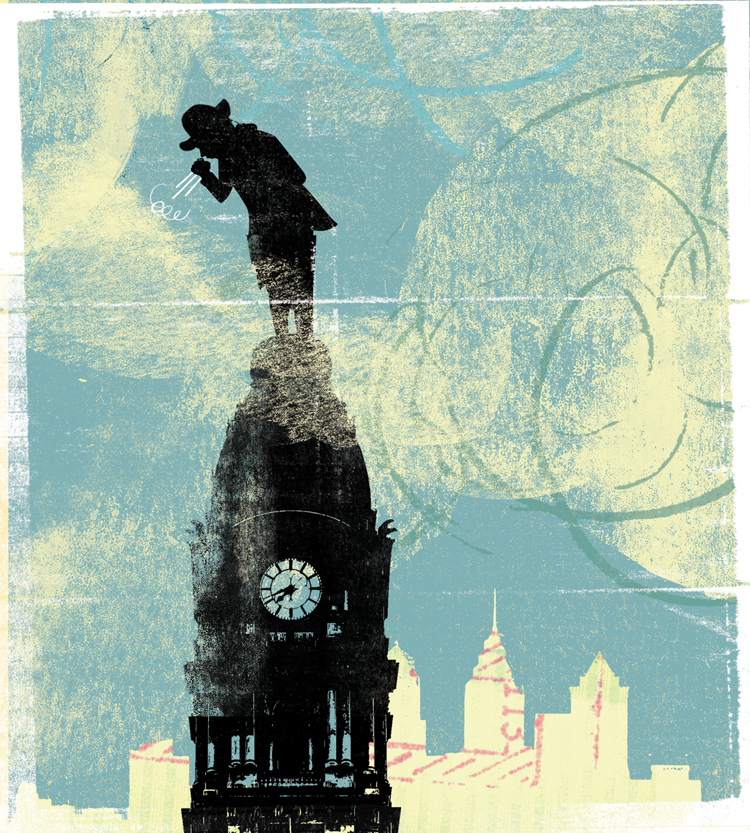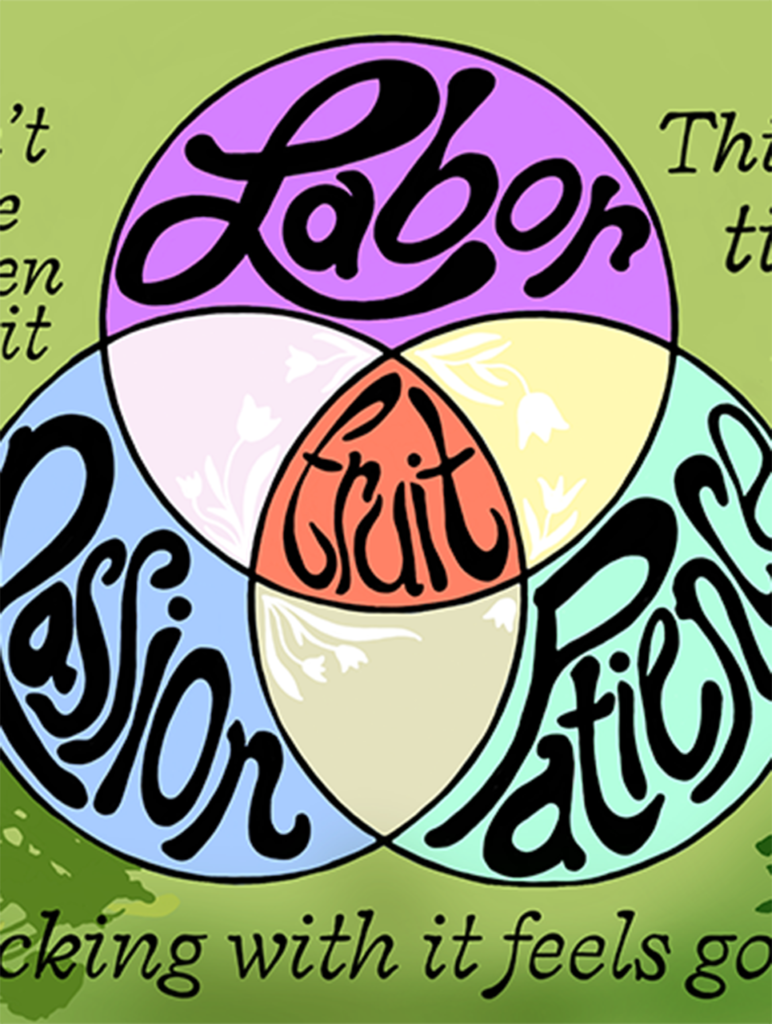Illustration by Narrator
Choking on the Past
by Patrick Ammerman
The city of Philadelphia is at a crossroads: We must choose between our past and our future.
We are still struggling to fill the most basic needs of our residents: From grossly defunded public schools to the 25 percent unemployment rate among young adults of color, inequality is rampant. The same inequality that plagues our city’s economic well-being can be seen in our health. Though you may rarely come across an article in The Philadelphia Inquirer or hear City Council candidates debate the issue, Philadelphia regularly receives “F” ratings from the American Lung Association for our air quality. Twenty-three percent of our children have asthma—a rate that is almost three times the national average. The poorest neighborhoods suffer higher rates.
We need to develop a path forward that meets the needs of all Philadelphians. We can’t continue down the same road and expect to remedy our glaring problems and disparities.
That, however, is what Phil Rinaldi, the CEO of Philadelphia Energy Solutions, operator of the Point Breeze-Girard Point oil refinery in South Philadelphia, seems to want to do. Over the past year, Rinaldi has been selling a vision of Philadelphia as an epicenter for oil and gas processing, a so-called “energy hub.” It’s been tantalizing for many who want to create jobs in the city that look like those of its bygone industrial economy. In January, PES submitted a proposal to expand their refinery into Southport—the most recent manifestation of what this energy hub would look like. The project is now on the Philadelphia Regional Port Authority’s short list of contenders.
To get a sense of what Rinaldi’s vision would mean for the stewardship of our home, we can look to the impacts of current PES refinery operations.
The South Philadelphia refinery is the dirtiest polluter in the city of Philadelphia. According to the Environmental Protection Agency, the PES refinery is responsible for 72 percent of Philadelphia’s toxic emissions, making it the biggest reason why our city has some of the worst air quality in the nation. If you’re wondering how that level of pollution could be legal—it’s not. The EPA has slapped PES with several violations over the past few years, and has classified the refinery as being in violation of and noncompliant with federal clean air and water regulations.
Rinaldi’s business also threatens nearly all Philadelphia residents with the fleet of oil trains that keep Bakken shale oil from North Dakota flowing to the refinery. The tracks leading to South Philly pass through downtown, and trains come and go every day. If the volatile oil were to catch fire and explode on any one of these trains—as has happened recently in Quebec and West Virginia—hundreds of thousands of people would be harmed, and lasting damage would be done to our environment.
Processing fossil fuels in such close proximity to so many people is not effective city management, nor does it put Philadelphia on the path to a healthy future—it sends us back to our even more polluted past, and it continues to put our economy and health at risk.
Impacts from the refinery are felt by all, but they are also disproportionately experienced by some Philadelphians based on race and class. The neighborhoods immediately around and downwind of the refinery are predominantly black and working class. They have to deal with foul smells coming from the refinery, the alarm of frequent fires, staggering rates of childhood asthma and other insidious impacts—such as cancer—that are harder to explicitly connect to a source.
When members of Philly Thrive started asking questions about the plans for a refinery expansion, we listened to our neighbors in Southwest and South Philadelphia. Many families have one or more members suffering from asthma and other afflictions. Many people said they weren’t going to sit idly by. We are ready to take action: As a community, we call for a Right to Breathe.
Philly Thrive demands a halt to any expansion of the PES refinery, a cap to its toxic emissions and no further investment in Philadelphia’s fossil-fuel infrastructure. Future investments made by PES should not be in outdated, dirty infrastructure but in renewable energy and climate-friendly jobs for Philadelphians, such as installing solar panels and making wind turbines. We also ask that the Kenney administration produce a health study to document any harm caused by the refinery to surrounding communities.
If a link is found, PES should pay health reparations to affected Philadelphians as compensation for decades of chronic health issues and expensive medical bills.
We don’t have to give up the most enticing part of Rinaldi’s vision: a brighter future. We can pool the ingenuity, hard work and brilliance of the people in our city to reimagine industries that have been linchpins of Philadelphia’s economy in the past and build on the parts of our economy that are already taking care of people and planet.
Philadelphia’s future—and our own lives—are at stake.
Patrick Ammerman is a member of Philly Thrive, which regularly holds movement trainings for people of all levels of experience. To get involved or find out when the next training is, visit phillythrive.org











Fantastic article, and I couldn’t agree more. Thank you. It would be interesting to profile the positions of the political leaders in Philadelphia on this fossil fuel expansion plan, from Kenney to city council. It truly is an existential threat to the rebirth of our city, not to mention the health and safety of all of us who live in center city and the suburbs.